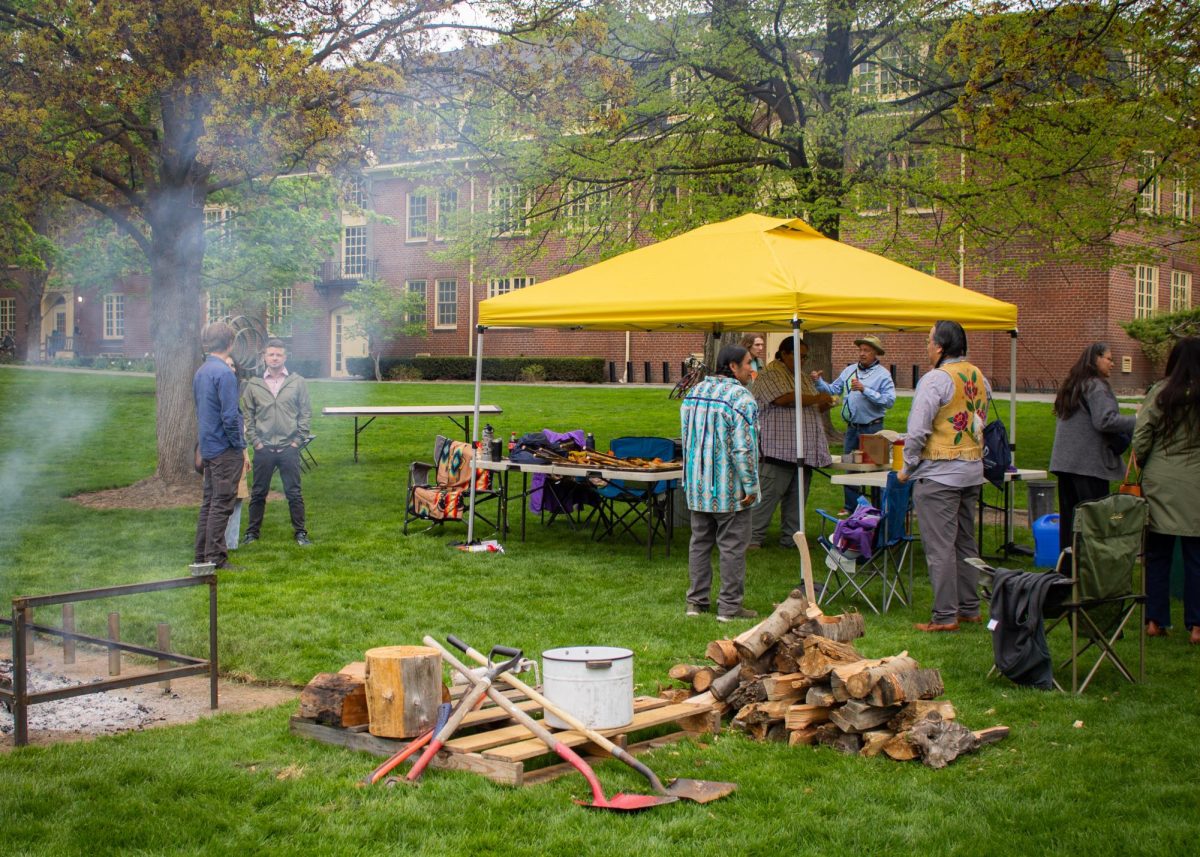Three administrators and a single faculty member presented a united front at the ASWC-sponsored Forum on Economic Diversity and College Accessibility on Wednesday evening.
The forum focused on contesting the data of a New York Times article which ranked Whitman last in socioeconomic diversity, and a blog post on The Awl which argued Whitman faces a crisis in economic diversity. Panelists focused on showing that the college does not lack economic diversity and therefore does not need to make changes to policy, rather than on discussion of policy changes, which have been demanded by protests throughout the last week.
Neal Christopherson, Director of Institutional Research, began by speaking of the subjectivity of lists such as the one published by the New York Times. He pointed out that Whitman would not have been last on the list had the Times used slightly different criteria when forming its list, such as drawing on a wider range of low-income students or using data from different years. However, he admitted Whitman would still have been in the bottom 20 percent.
Christopherson also pointed out several errors in the blog post’s interpretations of data about the college. These included the claim that Whitman’s 41 percent admittance rate for applicants to the class of 2014 showed the college could not be selective due to a small applicant pool (in reality, last year’s admittance rate was the lowest in Whitman history). The blog post also incorrectly claimed that Whitman has begun using a greater percentage of its financial aid for merit-based scholarships. In truth, while for several years the college shifted spending towards need-based aid, in recent years the ratio between need-aid and merit-aid has stagnated.
While Christopherson paid much attention to the blog post’s flaws, several statistics in the post suggesting the college actually has a problem with financial accessibility went unmentioned by the administrators. This includes the widening gap between the cost of the college and the gross amount of financial aid. In the past ten years, tuition has increased over 68 percent since 2006, and while need-based financial aid has also increased, it has not kept pace.
Tony Cabasco, Dean of Admissions and Financial Aid, explained the difference between “need-blind” and “need-sensitive” admissions policies. Cabasco explained that need-blind admissions can make it difficult for colleges to meet 100 percent of its admitted students’ demonstrated need. The majority of Whitman’s peer institutions, a group of thirteen other colleges and universities the college compares itself to on a regular basis for making decisions, either meet 100 percent of demonstrated need of students or both meet 100 percent of need and have need-blind admissions (excluding transfer and international students). Whitman does neither of these things.
Treasurer and Chief Financial Officer Peter Harvey presented on how Whitman compares to its peer institutions. No outstanding conclusions could be drawn from the comparisons, which generally showed the college to be in the middle of the field.
While ASWC originally intended to have a balance of faculty and administrators, in the end only Professor of Physics Kurt Hoffman spoke on the panel.
“This article represents a great chance for you all to do your little liberal-artsy thing and think about the data,” said Hoffman during the panel. “[These articles are] really talking about you when they say you don’t reflect diversity and we aren’t giving you enough money to come to school … you can compare with your friends. The First Generation group is another place where I’d ask those folks just to compare, why did you decide to come to Whitman and not go somewhere else if Whitman’s doing such a bad job offering you financial aid?”
Hoffman was recommended by Chair of the Faculty and Professor of History David Schmitz, who was scheduled to speak but was unable to attend due to illness. Though some faculty have gone on record expressing strong feelings about lack of economic diversity at Whitman, ASWC failed to find any faculty members willing to express criticism of the administration’s policy on the panel.
“We were lucky administrators were able reschedule [their meetings],” said ASWC President Tatiana Kaehler. “Most faculty couldn’t participate because of prior meetings.”
The panel was intended to inform ASWC representatives before they begin working to take action on the issue of economic diversity, which has been the subject of several student protests over the past week. ASWC will hold its first senate meeting on October 5th.
“This is the start of a really long conversation,” said Kaehler. “This really helps ASWC representatives understand where Whitman stands.”









Jeanne Morefield • Sep 25, 2014 at 10:41 am
This article makes it sound as though ASWC searched and searched and could not come up with a single faculty member “willing to express criticism of the administration’s policy on the panel.” Many of us would have expressed such criticism (and have expressed it) in a heart beat. A large group of faculty stand with students on this issue and will continue to do so. Please remember this.